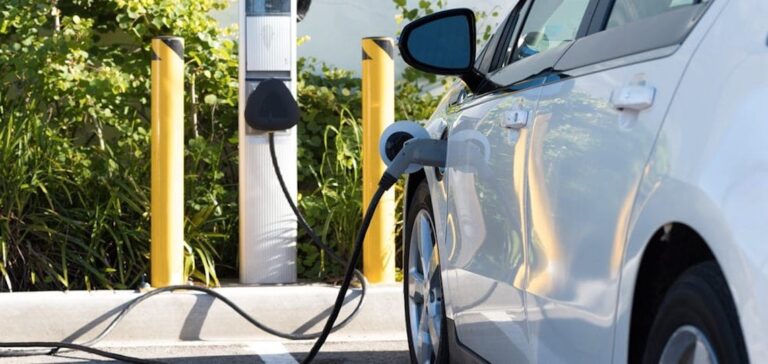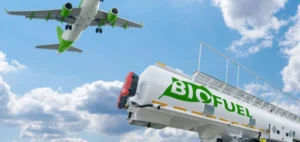France will be testing the recharging of electric cars and trucks on the A10 freeway near Paris, putting to the test two technologies that will enable vehicles to run for longer with smaller batteries that require less rare metals.
The Automotive Revolution of Dynamic Electric Road Charging
On the one hand, magnetic coils slid under the asphalt will recharge batteries by induction, just like cell phones. On the other, a rail inserted flush with the asphalt will enable equipped vehicles to connect to the ground. These “electric road” systems could accelerate the revolution underway in the automotive industry: they enable electric vehicles to run longer, without stopping to recharge, and without dragging around batteries that are too heavy and consume rare materials.
According to a study by the University of Gothenburg (Sweden), these “electric roads” could reduce the range required for normal use of cars by 62% to 71%, and therefore the size of their batteries. What’s more, the savings made on batteries would more than pay for them, according to the study.
High-speed tests: Dynamic Electric Recharging on the A10 and at Mont-Blanc
On the A10, the idea is to test these solutions at high speed. The aim is to “clear up the last remaining questions before deploying these technologies on a large scale, over hundreds or thousands of kilometers”, explains Louis du Pasquier, in charge of the project at Vinci. The first tests will be carried out in September 2023 in Rouen on a closed track belonging to Cerema, a public body under the authority of the French Ministry of Ecological Transition.
These dynamic charging systems will then be installed on four kilometers of the right-hand lane of the A10 in the Paris-Orléans direction, upstream of the Saint-Arnoult-en-Yvelines tollgate. Chargers will only activate with compatible vehicles.
The Mont-Blanc freeway (Haute-Savoie) will also soon be testing a “frotteur” solution, originally developed by Alstom for tramways. Vehicles equipped with a retractable device collect electricity from a feeder track inserted in the road surface. The “electric road” will be essential for rapidly electrifying heavy goods vehicles, which still run massively on diesel, according to reports due to the Ministry of Transport in summer 2021.
The Advantages and Challenges of Dynamic Electric Recharging according to Patrick Pelata
Enthusiastic Patrick Pelata, a former Renault executive, explains that the “electric road” will enable “strong decarbonization of long-distance road transport as electricity decarbonizes in Europe”. It also offers, he assures us, “excellent energy efficiency, a continuous power supply that doesn’t degrade truck operating conditions, and a significant reduction in the size of batteries for long-haul trucks”, while “very significantly” reducing the need for recharging stations.
However, there are still technological barriers to be overcome: according to reports submitted to the Ministry, induction is not very powerful and is expensive, while the rail can become clogged and cause problems for two-wheelers in particular.
Dynamic Electric Recharging: Three technologies on trial, Germany in the vanguard
In addition to induction and conductor rail, a third solution is currently being tested in Germany, using a catenary as for streetcars: this is “the most technically advanced”, but it only powers trucks, and the pylons required on the roadside pose road safety problems, according to a report submitted to the Ministry of Transport.
The start-up Electreon, which supplies the induction system, already has projects in Israel, Sweden, the United States and Italy, where Fiat is testing the charging of a small 500. The Elonroad consortium, which supplies the rail, has been testing it in southern Sweden since 2019. The experiment on the A10 will run for three years at a cost of 26 million euros, with support from the France 2030 public plan via the Public Investment Bank (BPI).






















